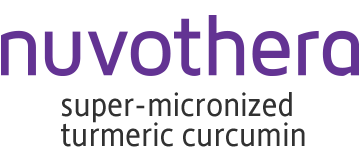What is Pustular Psoriasis?
01 May 19

Psoriasis is a chronic immune-mediated disease characterized by raised plaques on the surface of the skin, or in the joints. Normally, immune systems only attack foreign substances in the body like viruses and bacteria. However, for individuals with psoriasis, the immune system attacks healthy skin cells and commands new skin cells to rapidly grow. This results in layers of skin cells growing on top of each other, forming patches of excess skin that are dry, flaky, itchy, red, and inflamed.
Pustular psoriasis is an uncommon form of psoriasis that primarily presents with adults, which is neither infectious or contagious. It is distinguished by pustules, or pus-filled blisters, appearing over lesions of rough inflamed skin. As with other forms of psoriasis, symptoms can flare up or disappear depending on different factors. Generally, pustular psoriasis pustules appear and disappear rapidly, sometimes this can occur within only a few hours. Below, we will discuss everything you need to know about pustular psoriasis and what your treatment options are.
Symptoms of Pustular Psoriasis
People with pustular psoriasis can have small white or yellow blisters appear on any area of the body. If the blisters are spread out over the body, it is classified as generalized, but it can also affect only certain areas like the scalp, hands, feet, and genitals. Flare-ups of pustular psoriasis tend to start with reddening of the skin and then progress to scaling and pustule formation within hours. The pustules are filled with pus containing white blood cells, similar to the pustules associated with acne.
In addition to the skin symptoms, generalized pustular psoriasis can also be accompanied by:
- Chills
- Diarrhea
- Fever
- Nausea
- Severe itching
It can also increase an individual’s risk of developing diabetes, cardiovascular disease, cancer, and other types of psoriasis like nail psoriasis.
Types of Pustular Psoriasis
There are three types of pustular psoriasis that vary in severity and presentation. They are:
- Von Zumbusch
- Palmoplantar pustulosis (PPP)
- Acropustulosis (acrodermatitis continua of Hallopeau)
Von Zumbusch
Von Zumbusch (VZ) is a severe and life-threatening form of pustular psoriasis where widespread fiery-red skin lesions become painful and tender. The first manifestations of VZ symptoms appear abruptly and are soon followed by pustule formation. After 1 to 2 days, the blisters dry out, leaving white bumpy scars over dark red lesions.
People that develop Von Zumbusch must be hospitalized after a flare-up because of the following symptoms:
- Anemia
- Chills
- Dehydration
- Exhaustion
- Fever
- Irregular heart rate
- Muscle weakness
- Weight loss
These normal symptoms can lead to more severe medical complications such as:
- Critically low blood pressure
- Heart failure
- Respiratory distress syndrome
- Sepsis
Palmoplantar pustulosis
Palmoplantar pustulosis (PPP) is characterized by pustules on the bottom of the hands and feet. It is most prominent near joints where the skin is stretched and regularly disturbed, such as the areas around the heels and thumbs. The pustules are brown and look like small studs on top of red scaly skin lesions. When the pustules dry out, they peel off and create painful cracks in the skin.
Acropustulosis
Acropustulosis, formally known as acrodermatitis continua of Hallopeau, is a rare form of psoriasis. Eruptions are generally caused by an injury or infection revving up the body’s imprecise immune system. Small flat bumps form on the ends of fingers and toes in clusters called crops. They can fill with pus and be very itchy. In severe cases, small bones can be destroyed or deformed.
Pustular Psoriasis Causes and Triggers
Although the exact cause of pustular psoriasis is not known, it is thought to be linked to gene mutations. The disease often runs in families, suggesting the faulty gene is inherited. While there is no form of psoriasis prevention, there are lifestyle choices that can reduce the severity and frequency of outbreaks.
Studies have shown that the following can trigger and exacerbate psoriasis symptoms:
- Electrolyte imbalances
- Excessive alcohol consumption
- Infection
- Internal medications
- Obesity
- Pregnancy
- Smoking
- Stress
- Systemic steroids
- UV light exposure
Because everyone’s body is slightly different, people will respond to certain triggers differently. Journaling your experience with flare-ups is an effective way to better understand your specific triggers.
Pustular Psoriasis Treatments
Because psoriasis cannot be cured, treatments aim to control symptoms and prevent flare-ups. The first line of defense is prevention, which entails eating a balanced diet, sleeping adequately, never smoking, controlling alcohol and medication intake, and limiting sun exposure.
However, after the onset of symptoms, psoriasis sufferers need fast relief. This comes in the form of topical creams. Treatments like Prosoria focus on conditioning, exfoliating, and moisturizing dry skin. When applied over time, it results in reduced scaling, itchiness, and irritation. Long-term use can even clear skin of rashes.
Some treatments like prescribed systemic medications and phototherapy can clear skin but they may have potential side effects, so make sure to consult with a physician before testing them out.
Pustular Psoriasis Diagnosis
Diagnosing pustular psoriasis may sound scary but in reality, will help you take back control of your skin. If you suspect you may have pustular psoriasis, consult with your dermatologist and discover which treatment or combination of treatments is best for you.
Sources:
https://www.psoriasis.org/about-psoriasis/types/pustular
https://www.mayoclinic.org/diseases-conditions/psoriasis/symptoms-causes/syc-20355840

